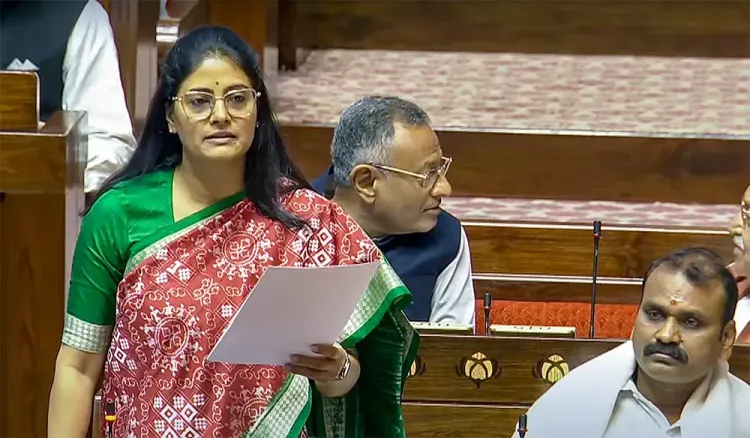India Reaches Total Fertility Rate of 2.0: Government Announcement

New Delhi, Dec 10 (NationPress) The Union government has reported that India has attained a total fertility rate (TFR) of 2.0 according to the National Family Health Survey-5 (2019-21). This information was shared on Tuesday.
During a written statement in the Rajya Sabha today, Union Minister of State for Health and Family Welfare Anupriya Patel highlighted that this achievement aligns with both the National Population Policy 2000 and the National Health Policy 2017, which set a TFR target of 2.1.
Patel elaborated on various initiatives introduced by the government under the family planning program, which include expanded choices in contraceptives such as condoms, combined oral contraceptive pills, emergency contraceptive pills, intrauterine contraceptive devices (IUCD), and sterilization options offered to beneficiaries.
She further noted that the selection of contraceptives has been enhanced with the introduction of new options like the injectable contraceptive MPA (Antara Programme) and Centchroman (Chhaya).
“The Mission Parivar Vikas initiative is active in seven states with high focus and in six North-Eastern states to improve the availability of contraceptives and family planning services,” she mentioned, emphasizing that a compensation scheme is in place for sterilization acceptors to cover lost wages.
Additionally, the government offers post-pregnancy contraceptive options, including Post-Partum Intrauterine Contraceptive Devices (PPIUCD), Post-Abortion Intrauterine Contraceptive Devices (PAIUCD), and Post-partum Sterilization (PPS) to beneficiaries.
To raise awareness about family planning, annual campaigns such as the World Population Day Campaign and Vasectomy Fortnight are conducted across all states.
Patel also pointed out that the Family Planning Logistics Management Information System (FP-LMIS) is operational for the management of family planning supplies at health facilities nationwide.
In a separate written reply in the Rajya Sabha, Union Minister of State for Health and Family Welfare Prataprao Jadhav stated that approximately 16,586 health facilities have been awarded the National Quality Assurance Standards (NQAS).
The NQAS framework, developed by the health ministry, aims to ensure and improve the quality of healthcare services at public health facilities.
In June, the NQAS for Integrated Public Health Laboratories (IPHLs) was launched to enhance testing accuracy and reliability.









